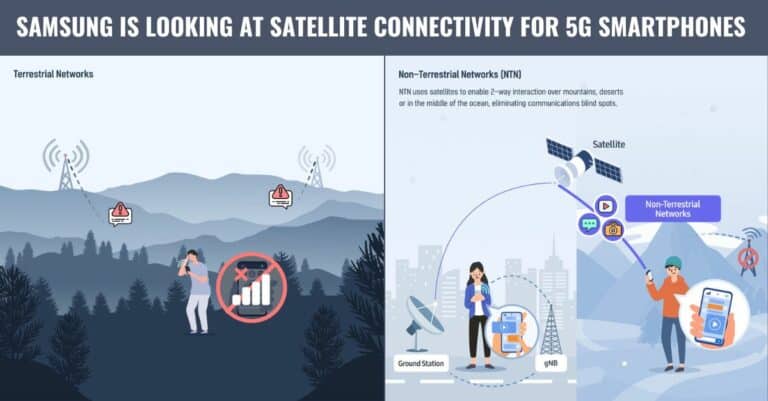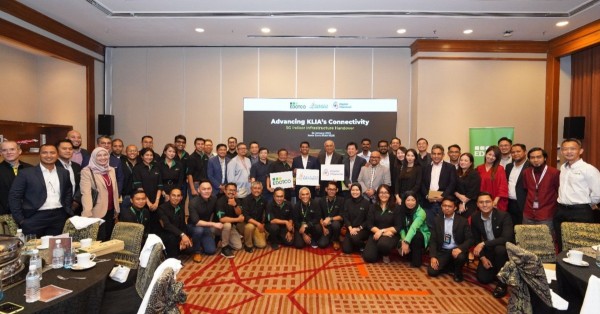Samsung Electronics, a world leader in advanced semiconductor technology, announced that it has secured standardized 5G non-terrestrial networks (NTN) modem technology for direct communication between smartphones and satellites, especially in remote areas. Samsung plans to integrate this technology into the company’s Exynos modem solutions, accelerating the commercialization of 5G satellite communications and paving the way for the 6G-driven Internet of Everything (IoE) era.

Image Credit: Samsung
“This milestone builds on our rich legacy in wireless communications technologies, following the introduction of the industry’s first commercial 4G LTE modem in 2009 and the industry’s first 5G modem in 2018,” said Min Goo Kim, Executive Vice President of CP (Communication Processor) Development at Samsung Electronics. “Samsung aims to take the lead in advancing hybrid terrestrial-NTN communications ecosystems around the world in preparation for the arrival of 6G.”
NTN is a communications technology that uses satellites and other non-terrestrial vehicles to bring connectivity to regions that were previously unreachable by terrestrial networks, whether over mountains, across deserts or in the middle of the ocean. It will also be critical in assuring operability in disaster areas and powering future urban air mobility (UAM) such as unmanned aircraft and flying cars.

Image Credit: Samsung
By meeting the latest 5G NTN standards defined by the 3rd Generation Partnership Project (3GPP Release 17), Samsung’s NTN technology will help ensure interoperability and scalability among services offered by global telecom carriers, mobile device makers and chip companies.
For highly reliable NTN communication with low Earth orbit (LEO) satellites, Samsung has developed and simulated 5G NTN standard-based satellite technology using its Exynos Modem 5300 reference platform to accurately predict satellite locations and minimize frequency offsets caused by the Doppler shift. Based on this technology, Samsung’s future Exynos modems will support two-way text messaging as well as high-definition image and video sharing.
Additionally, Samsung plans to secure a standardized NB-IoT NTN technology for use in its next-generation modem platforms. With integrated satellite connectivity, Samsung’s NB-IoT solutions will eliminate the need for a separate high-power wireless antenna chip inside smartphones, providing mobile device makers with much greater design flexibility.
























